Arkipakkaus - Everyday necessities and recycling in one package
A Loop Venture called Arkipakkaus was formed together with Kesko, Unilever Finland, Metsä Tissue, Encore Ympäristöpalvelut, Enexus and Orthex. Arkipakkaus was a pilot for monthly subscription model to buying everyday necessities such as toilet paper and detergents. The model included delivery of the products and take out for the plastic waste. The pilot was organized in May and June 2019.
Mission behind the Arkipakkaus concept was to make consumers’ every day life easier with a new kind of service. We know that there is a will to recycle plastic waste amongst consumers but the way to do it in practice isn’t easy enough. We wanted to make recycling more approachable and convenient by combining it with subscription model of everyday items. This kind of business model requires collaboration across traditional borders. These companies were ready to create a circular loop which opens doors to create new innovative ventures.
This venture is an excellent example of collaboration between big corporations. Kesko provided the subscription model, Metsä Tissue and Unilever the sustainable products. Encore Ympäristöpalvelut and Enexus were the ones organizing the take out for the waste and Orthex gave a second life for the plastic packages. Facilitating and testing a new business model isn’t always a piece of cake but in this case seamless teamwork enabled fantastic results.
To sum up, this pilot was a success and it indeed motivated consumers to recycle more than before. Arkipakkaus was a great opportunity to learn about new service models catering several consumer needs as well as corporations’ collaboration. Circular loop with a wide variety of companies can make a difference!
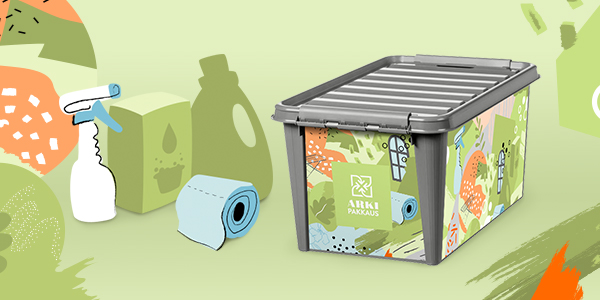
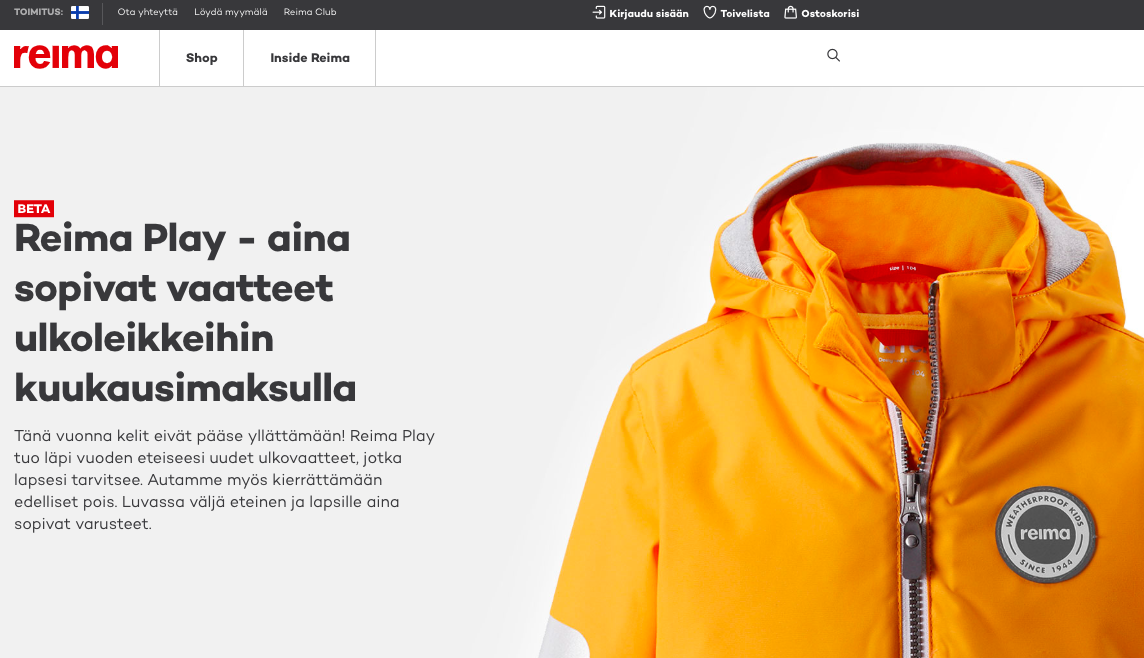
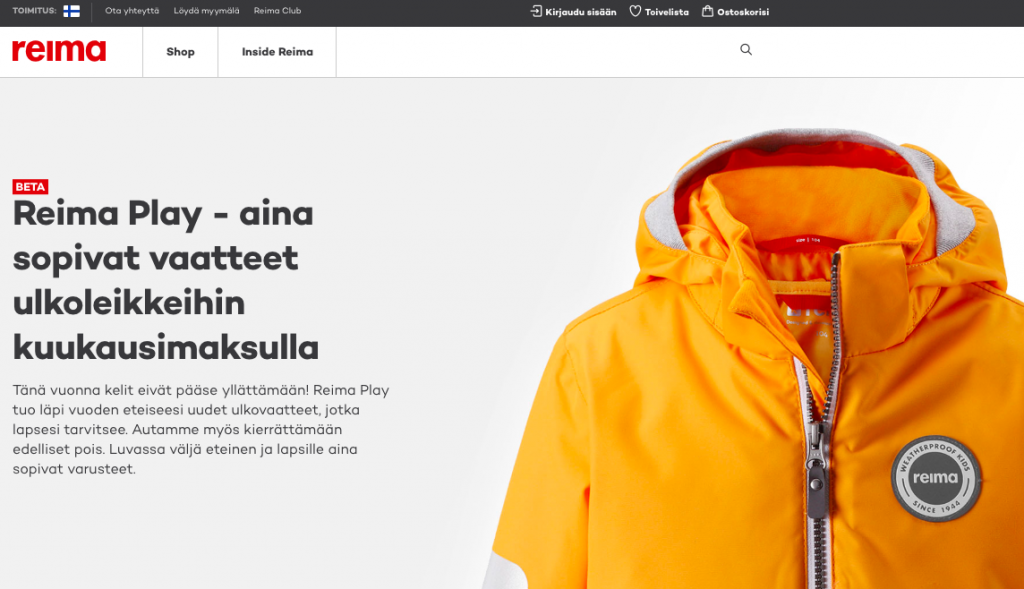 In a recent retro for our first launch, the team – a combination of Reima experts and external support, including LOOP Venture builders – felt unanimously that the secret to exceeded results was good communication and clear goals. “We all knew what had to be done and did it. Not once did anyone have to double-check if something was done, it was simply done” we agreed. The team had a clear focus on tasks and their priorities. With very little management and extremely light documentation, we managed to deliver what we needed daily, week after week.
The first release of Play was a true test of “Lean Corporate” methods used in LOOP Venturing. A way of delivering like a startup while reporting to regular corporate governance and delivering quarterly value. Not an easy task to achieve, but something we now feel certain can be achieved in all of our LOOP Ventures.
Reima Play is a service for parents with small children, helping them buy the top-tier outdoor clothing hassle-free. In Reima Play, customers subscribe to a monthly fee, fill in information about their kids and receive automatically the right set of clothing throughout the year. Packages vary from overall only to full set of gloves, shoes and mid layers. Reima Play also helps parents re-sell the used garments, eliminating yet another cumbersome task from families’ daily chores.
In a recent retro for our first launch, the team – a combination of Reima experts and external support, including LOOP Venture builders – felt unanimously that the secret to exceeded results was good communication and clear goals. “We all knew what had to be done and did it. Not once did anyone have to double-check if something was done, it was simply done” we agreed. The team had a clear focus on tasks and their priorities. With very little management and extremely light documentation, we managed to deliver what we needed daily, week after week.
The first release of Play was a true test of “Lean Corporate” methods used in LOOP Venturing. A way of delivering like a startup while reporting to regular corporate governance and delivering quarterly value. Not an easy task to achieve, but something we now feel certain can be achieved in all of our LOOP Ventures.
Reima Play is a service for parents with small children, helping them buy the top-tier outdoor clothing hassle-free. In Reima Play, customers subscribe to a monthly fee, fill in information about their kids and receive automatically the right set of clothing throughout the year. Packages vary from overall only to full set of gloves, shoes and mid layers. Reima Play also helps parents re-sell the used garments, eliminating yet another cumbersome task from families’ daily chores.
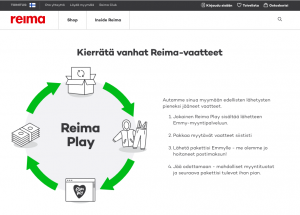 Reima Play is a case of moving towards a Product-as-a-Service model. The vision is to achieve a circular business where the clothing is all returned to Reima, enabling reuse, recycling and re-manufacturing of the clothing. In the first released version of the service Reima validates the customer need for an annual service to support families in the chore of clothing their children for some real outdoor fun. Next, recycling and refurbishing by Reima’s partner
Reima Play is a case of moving towards a Product-as-a-Service model. The vision is to achieve a circular business where the clothing is all returned to Reima, enabling reuse, recycling and re-manufacturing of the clothing. In the first released version of the service Reima validates the customer need for an annual service to support families in the chore of clothing their children for some real outdoor fun. Next, recycling and refurbishing by Reima’s partner